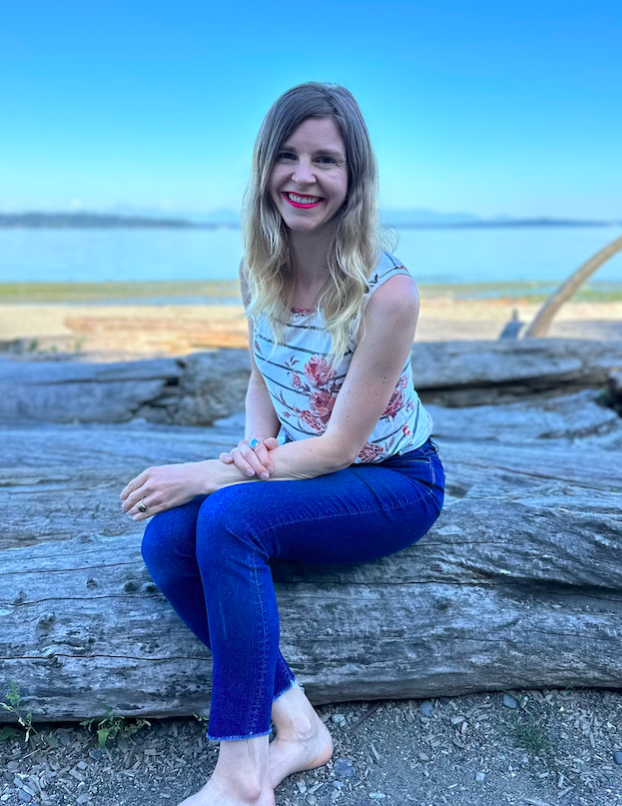My world changed the day I discovered the reality of human trafficking.
I was 20, and found myself holding my friend tightly as she tried to jump into traffic in the University District, a college neighborhood in Seattle, WA. She was suicidal, filled with despair, and desperate to disappear.
Just three months prior, my friend had met a charismatic and handsome man. From what my friend and I could tell, this man was caring, inspiring, and fun.
He was someone everyone wanted to be around.
My friend caught the eye of this man. He “love bombed” her with gifts, acknowledgments, and time. Soon they began a relationship that seemed like a whirlwind romance. He drew her in with gifts she could not afford, like designer clothing and a beautiful apartment. He told her he wanted to help her reach her goal of becoming a model. He promised her the world.
That night in the University District, when she settled enough to talk, my friend shared with me that this man- her boyfriend- had started pimping her with expectations that she have sex with strangers so he could pay their bills.
He convinced her it was easy money.
She gave it a try, and while she described it as making her feel powerful, she also felt ashamed. Trapped. Alone. She did not want to go on another “date.” She didn’t want to leave him because she loved him after all the care he showed her. But she also felt real fear and terror. He used violence if she didn’t meet a quota.
At one point, he strangled her and, in her words, “He allowed me to live.”
He threatened to tell her family and school to amplify her shame.
Looking back at this situation years later, I now know that my friend’s complex mix of emotions- feeling duty-bound, love, fear, terror, shame- are tools of the trafficker’s trade.
My friend’s situation was not unique. I have seen this pattern repeated in countless similar stories throughout my twenty-year career as an advocate. Sometimes traffickers are boyfriends, parents, or peers. Sometimes traffickers are highly organized black market businesses.
When REST was not yet a reality, my friend tried in vain to leave her manipulative boyfriend. She was caught in a cycle of fear, lack of resources, and manipulation that is common to trafficking victims. Her family and friends distanced themselves in order to protect themselves from her unsafe behaviors as the lifestyle of trafficking led her to use substances, have manic episodes, and act distrustful of others. I set boundaries to keep myself safe, while taking every opportunity to share a message that contradicted every other message she received each day:
“You deserve to be loved.”
Every year, REST shares this same message with hundreds of survivors, along with an invitation to engage in supportive relationships, access resources, and work towards their goals.
As survivors and allies, we work to create a world free from human trafficking.
As a survivor, if you need shelter, employment, housing- we’ve got you. If you need mental health, substance use, peer support- we’ve got you. And as you work towards your goals, then experience fear and self-sabotage, we’re here and will support you to continue your journey.
On the heels of World Day Against Trafficking in Persons, I invite you to stand alongside our community of survivors and allies at REST. In Seattle, approximately 2,000-3,000 children and adults are sexually exploited every night. We see evidence of this in our neighborhoods and, in growing amounts, on our evening news. I urge you to take action- you can make a donation, share this post, tell a friend about our work, or attend A Night of REST. Consider volunteering with us, or even just reach out for a conversation to learn more about what we do. Don’t underestimate the difference you can make.
Join us.
Anything you contribute will help us in our fight to create a world where everyone has a life free from exploitation.
*Note about the author:
REST is honored to share with you this deeply personal and compelling piece written by Audrey Baedke. As one of the founding members of REST and our current Director of Programs, Audrey has dedicated the majority of her professional life to battling human trafficking. Her relentless efforts have touched the lives of over 4,000 survivors thus far. The insights she shares are not just a testament to her tireless work and the transformative impact of REST, but also to the passion and enduring hope that fuels it.he way you tell your story online can make all the difference.


